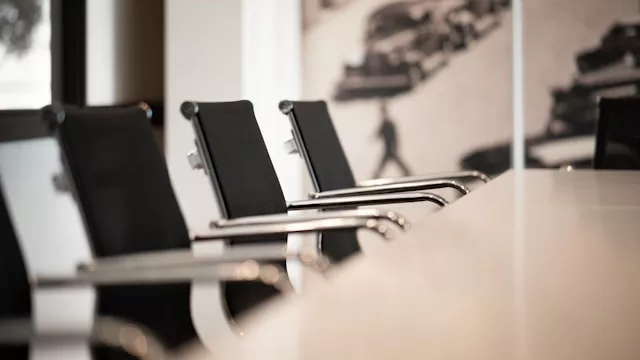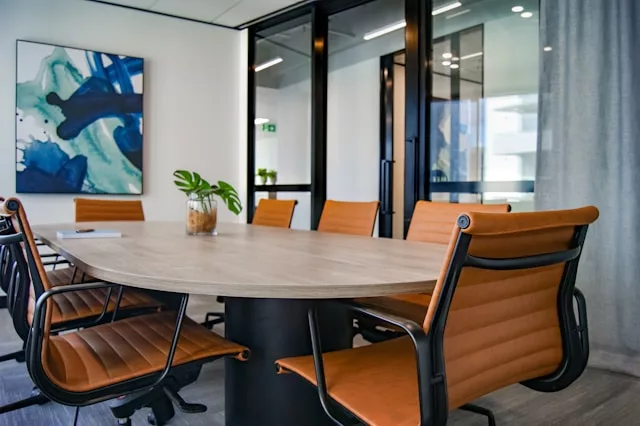Productivity in today’s fast-paced workplace culture is about how the environment supports the human mind and body, not only about technology or deadlines. Office furniture is one of the most underappreciated yet significant factors that affect concentration and wellbeing. The desks we work at, the chairs we use, and even the storage options nearby all have an immediate psychological and emotional effect.
You have firsthand experience with this relationship if you have ever felt exhausted in a disorganized office or immediately rejuvenated after clearing your desk. Let’s examine how office furniture psychology affects total workplace satisfaction, comfort, and productivity.
The Relevance of Office Furniture for Productivity and Mental Health
Workplaces have a profound impact on human psychology. Design features including ergonomics, lighting, and furniture arrangement have been repeatedly demonstrated by environmental psychology researchers to change mood, cognitive function, and even creativity.
When workplace furniture is badly designed, employees frequently complain about:
- Burnout and exhaustion
- Reduced focus
- Stress brought on by discomfort or mess
However, well-designed, ergonomic, and comfy workplace furniture promotes wellbeing, lowers anxiety, and increases focus.
The Science of Comfort and Concentration
Good ergonomics is among the most crucial features of office furniture. Furniture that is ergonomically designed adjusts to the natural posture of the body, lowering stress and enhancing concentration.
Your Brain’s Best Friend Is the Ergonomic Chair
By supporting the arms, neck, and spine, an ergonomic office chair lessens pain that interferes with productivity. Higher levels of job satisfaction and mental alertness are reported by workers who use ergonomic seats.
Important characteristics to search for:
- Seat height adjustment and lumbar support
- Fabric that breathes for extended periods of sitting
- Sufficient padding to support the hips and back
- Armrests that ease strain in the shoulders
Standing Workstations and Mental Quickness
Alternating between sitting and standing has been shown to increase blood circulation, decrease weariness, and improve focus. By reducing boredom and giving employees a sense of control over their surroundings, standing desks also improve psychological well-being.
The Role of Color Psychology in Office Furniture
Colors have a significant impact on feelings and output. The atmosphere for concentration and creativity can be created by selecting the appropriate office furniture with appropriate colors.
- Blue colors encourage concentration and serenity, which is ideal for analytical work.
- Green color is excellent for collaborative spaces, it eases eye strain and fosters harmony.
- Yellow color encourages creativity and optimism, making it perfect for brainstorming areas.
- Neutral and gray colors provide professionalism and balance; they are frequently utilized in executive settings.
A well-balanced color scheme prevents employees from becoming demotivated by too much gray or overstimulated by too much red.
Clear Work Areas: Furniture for Mental Focus
In addition to being ugly, a disorganized desk raises stress levels. According to psychologists, clutter overloads the brain, making concentration difficult.
Desk organizers, filing cabinets, and modular shelves are examples of office storage furniture that promotes mental clarity. When everything is in its proper location, workers are more productive and expend less energy looking for things.
A small investment in storage solutions improves office productivity and lowers anxiety.
The Social Psychology of Workplace Configuration
Furniture influences team dynamics and collaboration in addition to individuals.
Modular desks and open layouts promote communication but can sometimes cause distractions.
Although they can feel isolating, private cubicles or walls encourage intense concentration.
Flexible furniture and hybrid configurations let staff members select what suits them best.
Balance is crucial: Modern offices are more harmonious when the furniture encourages both teamwork and individual focus.
The Benefits of High-Quality Office Furniture for the Mind
1. Promotes Professionalism and Confidence
Having high-quality workplace furniture conveys achievement and credibility. Clients view a brand as reliable when they enter a well-furnished office. Employee pride in their workplace and self-esteem are increased when they sit in a comfortable executive chair.
2. Attenuates Anxiety and Stress
Supportive, cozy furniture eases physical discomfort and lowers stress hormones called cortisol. A calmer, sharper intellect results from a relaxed body.
3. Encourages Creativity
Inspiring environments are typically the source of creative thoughts. The creative areas of the brain are stimulated by furniture with contemporary designs, colorful accents, and adaptability.
4. Promotes Mobility and Adaptability
Lethargy can be avoided by using furniture that encourages minor movements, such as swivel sitting, standing desks, and adjustable chairs. The brain is more attentive when the body is more active.
Psychology of Remote Working Furniture
Home office furniture has been essential to productivity and well-being since the pandemic standardized remote work.
Typical errors made by home workers:
- Instead of using ergonomic chairs, use dining chairs
- Poor posture can result from working from couches or beds.
- Inadequate organization and storage
Answers:
- Purchase a small, ergonomic chair made for your house.
- Put in a little desk to mark off your workspace.
- Keep clutter at bay by using clever storage gadgets.
By keeping work and leisure areas distinct, a well-designed home office can lower stress and burnout.
Office Furniture and Staff Retention
Were you aware? Businesses with visually appealing and ergonomic furniture have reduced employee turnover rates. A well-furnished workstation is seen by employees as an indication that their company values their well-being.
Loyal employees are happy employees.
For this reason, contemporary businesses spend a lot of money on office furniture since it’s a long-term investment in the retention and well-being of their workforce.
How to Pick the Best Office Furniture for Concentration and Health
Take into account the following practical and psychological aspects when looking for office furniture:
Ergonomic features: Give preference to workstations and chairs that adapt to the posture of the user.
- Aesthetic design-Select hues and textures that evoke a favorable feeling.
- Quality & Durability -Long-lasting furniture increases self-esteem.
- Optimize space by making sure that layout and storage minimize clutter.
- Flexibility– Modular furniture can be adjusted to accommodate various work styles.
Final Thoughts
There is more to office furniture than just metal, fabric, and wood. It is a psychological instrument that influences our daily thoughts, emotions, and behaviors. The appropriate furniture, whether in a home office or a business setting, promotes:
- Concentration
- Coziness
- Originality
Health and well-being
Purchasing the appropriate office furniture is about more than simply style; it’s about designing an environment that stimulates creativity, supports the body, and fosters mental well-being.





